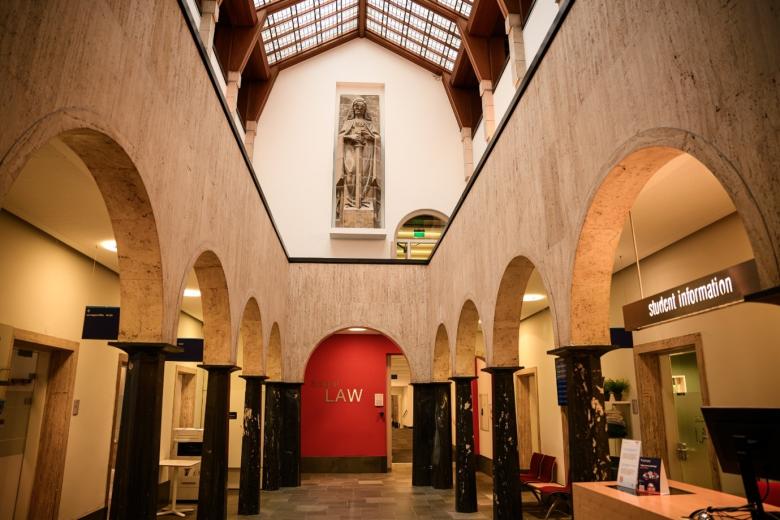Globalisation & Law Network seminar with Christine Frison and Adriana Moreno Cely
On 15 May 2025, the Globalisation & Law Network held a seminar featuring Prof.dr. Christine Frison and Dr Adriana Moreno Cely (University of Liège), who presented their forthcoming article ‘Navigating Chaos: Decolonial and Feminist Methodologies in International Biodiversity Law’ (co-authored with Dr Elsa Tsioumani). The article sets the agenda for Prof. Frison’s ERC-funded project Decolonizing international biodiversity law: digital sequence information as a revealer (DecoLawBiodiv).
The project was inspired by Prof. Frison’s experience participating in multistakeholder negotiations and witnessing how international environmental and biodiversity law can be weaponised to perpetuate injustices against people from the Global South. After realising that lawyers have limited tools to address environmental degradation while upholding fairness and equality, she devised an innovative transdisciplinary approach, blending the insights from law, art and science, to studying access and benefit sharing (ABS). The project also led to the establishment of EcoLAWgy - a new research centre at the University of Liège.
In the article presented at the seminar, Prof. Frison and co-authors explore how Third World Approaches to International Law (TWAIL) as well as decolonial and feminist lenses can shed light on deeply entrenched power imbalances and colonial legacies heart of global environmental governance. Classical legal and social sciences methods are often blind towards the colonial matrix of power (spanning power, nature, knowledge, mind and gender) and are unable to offer conclusive solutions for achieving epistemic justice. In contrast, decolonial and feminist approaches respect diverse worldviews and pluralistic legal perspectives, ensuring a more nuanced outlook on societal order and existing norms. To illustrate this argument, Dr Adriana Moreno Cely highlighted how the Circle of Dialogue of Wisdom - the decolonial methodological framework developed in the context of a collaborative research project for territorial planning in Bolivia - can enable contrastive mutual learning and knowledge co-creation by prioritising listening over speaking or judging.
Curious about the current challenges of law and governance? You can register for the upcoming research seminars organised by the Globalisation & Law Network. We look forward to seeing you there!
Also read
-
Inaugural lecture Jan Willem van Prooijen
What drives people to embrace radical conspiracy theories, sometimes with far-reaching consequences for society? During his inaugural lecture on Friday 27 June, Prof. Dr. Jan Willem van Prooijen (radicalisation, extremism, and conspiracy thinking) will address this urgent question.

-
Globalisation & Law Network seminar with Rodrigo Vallejo Garretón
On 4 July 2025, the Globalisation & Law Network had the pleasure of welcoming Dr Rodrigo Vallejo Garretón, Assistant Professor in Private Law at the University of Amsterdam.

-
Maastricht Montesquieu Institute (MMI) to be discontinued as of 1 September 2025
MMI to be discontinued as of 1 September 2025; research continues elsewhere.
